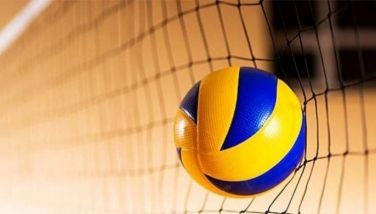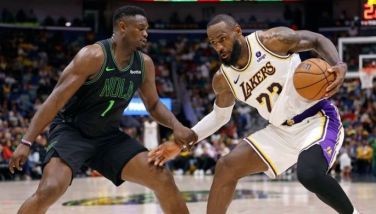The future is private
The Philippines is possibly the only country in the world where national amateur sports serve two masters. Amateur sports are governed by their own national sports associations (NSAs) or independent groups, and yet are still answerable to government agencies. Before the Philippine Sports Commission was created by law in 1990, the national government had Project: Gintong Alay which, according to its poetic name, offered any and all gold it garnered to the Filipino people. That’s all well and good, but the dichotomy has produced mixed results. It isn’t the most efficient system, as almost all of the other countries in the world sit squarely on one side of the fence or the other.
The United States has arguably the most successful sports business system in the world. Private enterprise runs all the biggest sports leagues, and they all contribute mightily to their national success in multi sports competitions like the Olympic Games. There is no government intervention, except perhaps when athletes egregiously flout the law. Funding comes from each sports group’s own striving, and there is a groundswell of support for youth sports programs. Then again, the economies of scale are different when compared to that of the Philippines. Americans are generally considered to live on a higher economic scale; more of them have cars, and their currency is stronger. Therefore, they can afford to consider sports as more of necessity, whereas, proportionately, Filipinos may not prioritize it. In many places in the country, it is considered a secondary pleasure, or even a luxury.
On the other side of the divide is China, whose sports programs are all run by the national or local government units. Since the time after Mao Tse Tung attempted to abolish sports as a “decadent Western practice,” the sleeping giant has arisen. The Middle Kingdom has relaxed its isolationism, and organized sports. The last 30 years have seen China become a factor in hosting international sports competitions, and its athletes have become contenders in several sports from athletics to swimming to weightlifting to basketball. Although free economy has started permeating China, it has a much stronger history of its people pretty much just following what the government says. In addition, major cities have sports universities and commercial sports teams. And at the end of the day, top-down communication is very efficient. The government speaks, the citizens follow.
Each way has its shadowy side, each system has corruption. This manifests in doping, cheating on age, naturalizing undeserving athletes, misuse of funds. Each answers to its own internal and external authorities. At the end of it all, each has its flaws.
Let’s examine the Philippine scenario. The Philippine Olympic Committee (POC) has a vastly improved relationship with the Philippine Sports Commission (PSC). Each side respects the other, and the PSC has supported the organization of the coming Southeast Asian Games. The only problem arises when the PSC has to exercise its supervisory and oversight powers on POC members, as it only ever started to do from 2016. When this happens, the NSAs at the other end of the magnifying glass cry “government intervention.” The suspect NSAs also use this shtick when the government questions their selection of athletes, coaches, officials and overall performance. In return, the PSC employs safeguards ranging from suspension of funds to ensuring that moneys disbursed go directly to the athletes, no matter how awkward that is. After all, PSC uses public funds, and is directly under the Office of the President.
However, this set-up also has its vulnerability. Funds are prescribed by the legislature. If both houses don’t value sports, the funds assigned are smaller. From 1992 to 2016, the government was also misinterpreting the National Sports Development Fund Law, and essentially only giving the PSC half of the amount mandated by that law. Thankfully, President Rodrigo Duterte has reversed that, and things are now better.
Better, but not great. Why is that?
The fact is that we are still dealing with the dregs of past political and inefficient systems and people who run their sports like personal playgrounds. That is something government reforms can’t repair. And let’s face it, some of these troublemaking gatekeepers will cause problems until they die or reluctantly pass their power on to someone else.
What is the solution? Take away their life support system.
This may seem controversial, but it may be time to finally just let sports associations find their own funds. The PSC can then concentrate all its resources on its other mandate: grassroots sports development.
There are many sports that are performing well on their own, growing at their own rate, finding their own success, ranging from basketball to boxing to some martial arts and the likes of tchoukball and bodybuilding. They are either entirely autonomous financially, or are not yet receiving PSC funding. We all know how basketball has reorganized and is making strides in the right direction. The Tchoukball Association of the Philippines has qualified for its sport’s world championships, and has fielded teams that have made the top 10 in the world in beach tchoukball. And they’ve done it on their own, with their integrity intact.
Politics has paralyzed several high-profile sports, to unfavorable results. Why should public money be used to support the self-serving? If they can raise money and find the resources on their own, they should. If they are doing things the right way, then they are more likely to succeed. Let them take a bite out of their own kind. Then they can scream independence all they want.
- Latest
- Trending


























